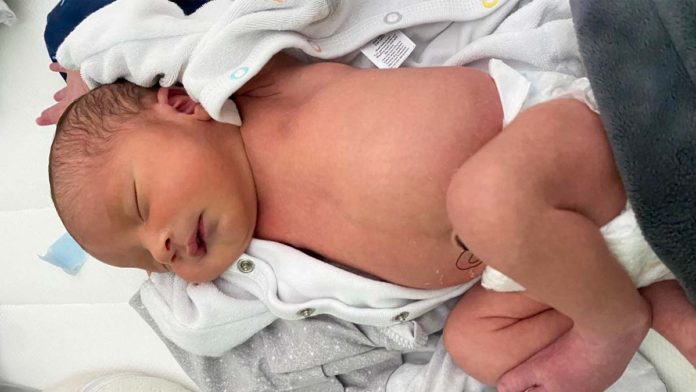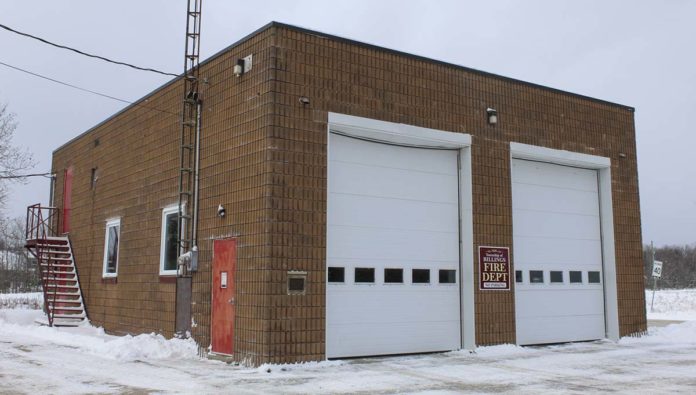MANITOULIN—Northern Ontario School of Medicine (NOSM) is conducting research within Indigenous communities, starting on Manitoulin Island and partnering with organizations like Debajehmujig Storytellers, to strengthen vaccine confidence among Indigenous youth.
Drs. Marion Maar, associate professor, medical anthropology and Maurianne Reade, associate professor, clinical sciences division and a rural generalist family physician on Manitoulin Island, are principal investigators for the project, ‘Co-Creating Vaccine Confidence: An Anishinaabe Theatre-based Approach to Strengthen Indigenous Youth and Young Adult Vaccination Support.’
Funded for $200,000 over two years by the Canadian Institutes for Health Research (CIHR), the team will combine Indigenous arts-based research methods with public health approaches to learn what matters most to young people regarding COVID-19 vaccination. The project aims to build upon the collaboration between First Nations communities, the Manitoulin healthcare system, and Public Health Sudbury and Districts (PHSD), which achieved high rates of COVID-19 vaccination uptake.
“Like other regions, First Nations youth and young adults were vaccinated at lower rates than older people in Northern Ontario,” said Dr. Reade, who is a member of the Ontario Immunization Advisory Committee and is involved in strategic planning for vaccine distribution on Manitoulin Island. “Intersectoral research collaborations create opportunities for new innovations that are needed to inform the most appropriate approach to society’s most complex challenges.”
Debajehmujig Storytellers and artistic leads, Bruce Naokwegijig and Joahnna Berti, hold international credentials in Indigenous performing art. They are focusing on the youth engagement part of the project in collaboration with Alison Humphrey from the ImmuneNations project. Together, they will co-create ‘forum theatre’- a performing art form that leverages speculative fiction and serious games to foster Indigenous youth-led conversations about COVID-19 vaccines.
“It will be starting with Manitoulin Island,” Dr. Reade told The Expositor. “From there we hope to engage others in the North, especially all partners with (PHSD). We’re hoping it will be broader involvement.”
“What we are hoping to do is get a better understanding of what builds vaccine confidence in youth,” said Dr. Reade. “Manitoulin Island has a strong rate of vaccination overall, but like other areas youth groups are at a lower rate than their older cohorts. We are interested in what builds confidence in youth using an Anishinaabe theatre-based approach to strengthen Indigenous youth and young adult vaccination support.”
“Prior to the pandemic, Debajehmujig had been working with researcher Alison Humphrey from the ImmuneNations project,” said Dr. Reade, who noted she was also involved in that project as well. With the COVID-19 pandemic not being over quickly, the quest for vaccine numbers to rise continues and a deeper understanding of vaccine confidence will be helpful. Storytelling theatre is a powerful way to communicate information and ask the big questions, she added
“The cool thing about our portion of the project is that we are engaging youth in our communities,” Ms. Berti told The Expositor. “Alison Humphrey (who is from York University) had created a forum there three to four years ago, a giant arts project based on a global pandemic in which the virus is easily spread (with both characters and backstory, the students have to put into context ‘yes’ or ‘no’ to taking vaccines). It was a really interesting exercise and she (Ms. Humphrey) went to London and Tokyo working with post-secondary students theatre and created the story with them, and she started an exercise in London. She has also done work in Africa and South Africa.”
“Our doctors on Manitoulin Island go to medical conferences and it was Dr. Reade who put us in touch with Alison,” said Ms. Berti. “And we (Debajehmujig) ran a shadow pox theatre exercise in which people have smallpox and are isolated in home) here in Wiikwemkoong at the Creation Centre, over a five day period in 2019. It documented the shock of a pandemic hitting close to the person in the play and them finding out that someone in their home has the virus and someone they know sick fell sick and died.”
Ms. Berti said, “It was a brilliant exercise, to test emergency (response in a pandemic situation). We did the theatre exercises with Debaj in 2019 and then in 2020 we were all in lockdown due to the pandemic.”
“One of the things that fascinates me about this exercise is that if you are a doctor, the issue of the pandemic is black and white. It is clear in their minds what people need to do,” said Ms. Berti. “But the further one is from the front lines of health care, it’s less black and white with alternative polarizing information in social media. We have seen that happen; the precursor for reality is a lot like the imagined reality.”
“We are delighted that Debahjehmujig is participating in a project like this,” said Ms. Berti.”
Dr. Reade said, “We’re really excited about having the opportunity to collaborate with Debahjemujig. I
It was explained Dehajehmujig will use virtual combined multi-media, using gaming in a broader sense to connect youth and young adults.
“We just found out that we are part of this project,” said Ms. Berti. The whole idea is to stimulate discussion among youth and young adults. In a lot of cases youth may feel they don’t have time to get vaccinated, that they will get around to it, and because they are young they feel they will survive in the meantime. It’s not necessarily a resistence to getting vaccinated, they just haven’t got there yet. It is about helping people understand the importance of getting vaccinated.”
“We are starting now and this will run over two years as a collaborative effort, and we expect a variety of things to come out of the research,” said Dr. Reade.
Together with Mariette Sutherland, a First Nations health leader, the team will support knowledge translation by communicating their findings with Indigenous communities and with the public health sector across the country.
“The team will use surveys and theatre-based engagement sessions to better understand the lived experience of the pandemic from the perspective of young Indigenous peoples,” said Dr. Maar. “We are interested in learning how Indigenous youth receive their health information, and what structural and intergenerational factors they may face. Most importantly, we invite all youth perspectives to highlight the specific needs of urban, rural, First Nations, Métis, gender diverse and 2SLGBTQ+ community members.”





